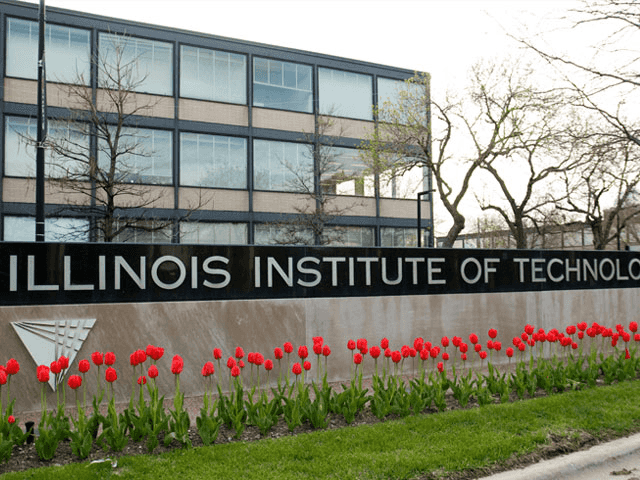Workshop Title:
NLP for Cybersecurity
Date:
January 15th, 2024 (CST)
Organizer:
ITM Department, Illinois Institute of Technology, USA
Keywords:
- Natural Language Processing (NLP)
- Cybersecurity
- Machine learning
- Feature engineering
- Text classification
- Sentiment analysis
- Anomaly detection
- Phishing email analysis
- Unstructured data analysis
Workshop Chair:
Personal Bio:
Dr. Omar's Academic career has consistently focused on applied, industry-relevant cyber security, Data Analytics, machine learning, application of AI to cyber security and digital forensics research and education that delivers real-world results. He brings a unique combination of industry experience as well as teaching experience gained from teaching across different cultures and parts of the world. He has an established self-supporting program in machine learning application to cyber security. He has established a respectable research record in AI and cyber security exemplified in the dozens of published papers and book chapters that have gained recognition among researchers and practitioners (more than 272 Google scholar citations thus far). He is actively involved in graduate as well as undergraduate machine learning education including curriculum development and assessment.
Dr. Omar has recently published two books with Springer on Machine Learning and Cyber Security and has also published research with IEEE conference on Sematic Computing. Additionally, Dr. Omar holds numerous industry certifications including Comptia Sec+, ISACA CDPSE, EC-Council Certified Ethical Hacker, and SANS Advanced Smartphone Forensics Analyst.
Dr. Omar has been very active and productive in both academia as well as the industry and he is currently serving as an associate professor of cyber security at Illinois Institute of Technology.
Workshop Description:
Background:
Natural Language Processing (NLP) has been a rapidly growing field in recent years, with applications ranging from language translation to sentiment analysis. One area where NLP can have a significant impact is in cybersecurity, as the majority of security breaches involve some form of human interaction with technology. This workshop aims to explore the intersection of NLP and cybersecurity, with the goal of providing participants with the skills and knowledge needed to apply NLP techniques to real-world cybersecurity problems.
One of the primary challenges in cybersecurity is the sheer volume of data that needs to be analyzed. NLP can help address this challenge by automating the analysis of unstructured data, such as emails, chat logs, and social media posts. NLP techniques can be used to extract meaningful information from these sources, such as identifying potential threats or indicators of compromise.
Another key area where NLP can be applied to cybersecurity is in the analysis of user behavior. By analyzing patterns in user activity, NLP algorithms can identify anomalies that may indicate a security threat. For example, if an employee suddenly starts accessing sensitive data outside of normal business hours, this could be a sign of a compromised account.
Finally, NLP can be used to improve the effectiveness of security awareness training programs. By analyzing the language and tone of phishing emails, NLP algorithms can generate more realistic training exercises that are better tailored to the needs of individual employees.
Overall, the combination of NLP and cybersecurity has the potential to significantly enhance our ability to protect against cyber threats. This workshop will provide participants with an introduction to the key concepts and techniques in this area, along with hands-on experience applying NLP to real-world cybersecurity problems.
Goal / Rationale:
The goals of this workshop are to provide participants with an understanding of the key concepts and techniques in the field of NLP for cybersecurity, and to equip them with the skills and knowledge needed to apply NLP techniques to real-world cybersecurity problems. More specifically, the workshop aims to achieve the following goals:
- Introduce participants to the intersection of NLP and cybersecurity: The workshop will provide an overview of how NLP techniques can be applied to cybersecurity problems and the benefits of doing so.
- Provide a foundation in NLP concepts and techniques: The workshop will cover the foundational concepts and techniques in NLP, such as text preprocessing, feature engineering, and machine learning algorithms for text classification and sentiment analysis.
- Explore NLP applications in cybersecurity: The workshop will cover various NLP applications in cybersecurity, such as automated analysis of unstructured data, anomaly detection, and phishing email analysis.
Scope and Information for Participants:
The scope of the "NLP for cybersecurity" workshop is focused on the intersection of natural language processing (NLP) and cybersecurity. The workshop will cover foundational NLP concepts and techniques, and explore how these techniques can be applied to various cybersecurity problems.
The workshop is designed for individuals who are interested in using NLP techniques to enhance their organization's cybersecurity posture. Participants may include cybersecurity professionals, data scientists, machine learning engineers, and other professionals who are interested in applying NLP to cybersecurity.
The workshop will cover a range of topics, including text preprocessing, feature engineering, machine learning algorithms for text classification and sentiment analysis, and various NLP applications in cybersecurity. Through hands-on exercises, participants will gain practical experience in applying NLP techniques to real-world cybersecurity problems.
While the workshop will provide an overview of NLP concepts and techniques, it is not designed to be an exhaustive or comprehensive training program. Rather, it is intended to provide participants with a foundational understanding of NLP for cybersecurity and the skills needed to apply these techniques to real-world problems.
Overall, the scope of the "NLP for cybersecurity" workshop is focused on providing participants with the knowledge, skills, and confidence to apply NLP techniques to enhance their organization's cybersecurity posture and protect against cyber threats.
Highlights:
The "NLP for Cybersecurity" workshop is a comprehensive program designed to merge the fields of Natural Language Processing (NLP) and cybersecurity. This workshop is not only an introduction to the intersection of these two crucial areas but also a platform to equip participants with the necessary skills and knowledge to implement NLP techniques in solving real-world cybersecurity challenges. During the course, foundational concepts of NLP will be thoroughly covered. This includes an introduction to text preprocessing techniques, which are essential for preparing raw data for analysis. Feature engineering, another key aspect, will be explored, highlighting how to extract and select the most relevant features from text data for effective model building. Additionally, the workshop will delve into various machine learning algorithms, focusing on their application in text classification and sentiment analysis, which are pivotal in understanding and interpreting cybersecurity data.
In conclusion, the workshop aims to provide a solid foundation in NLP techniques within the realm of cybersecurity. Participants will leave with not only theoretical knowledge but also practical skills and the confidence to apply these techniques in their organizations. This will empower them to enhance their cybersecurity posture and effectively protect against a wide range of cyber threats. By the end of the workshop, participants should possess a robust understanding of how to apply NLP techniques to cybersecurity problems, making them valuable assets in the ongoing fight against cybercrime.
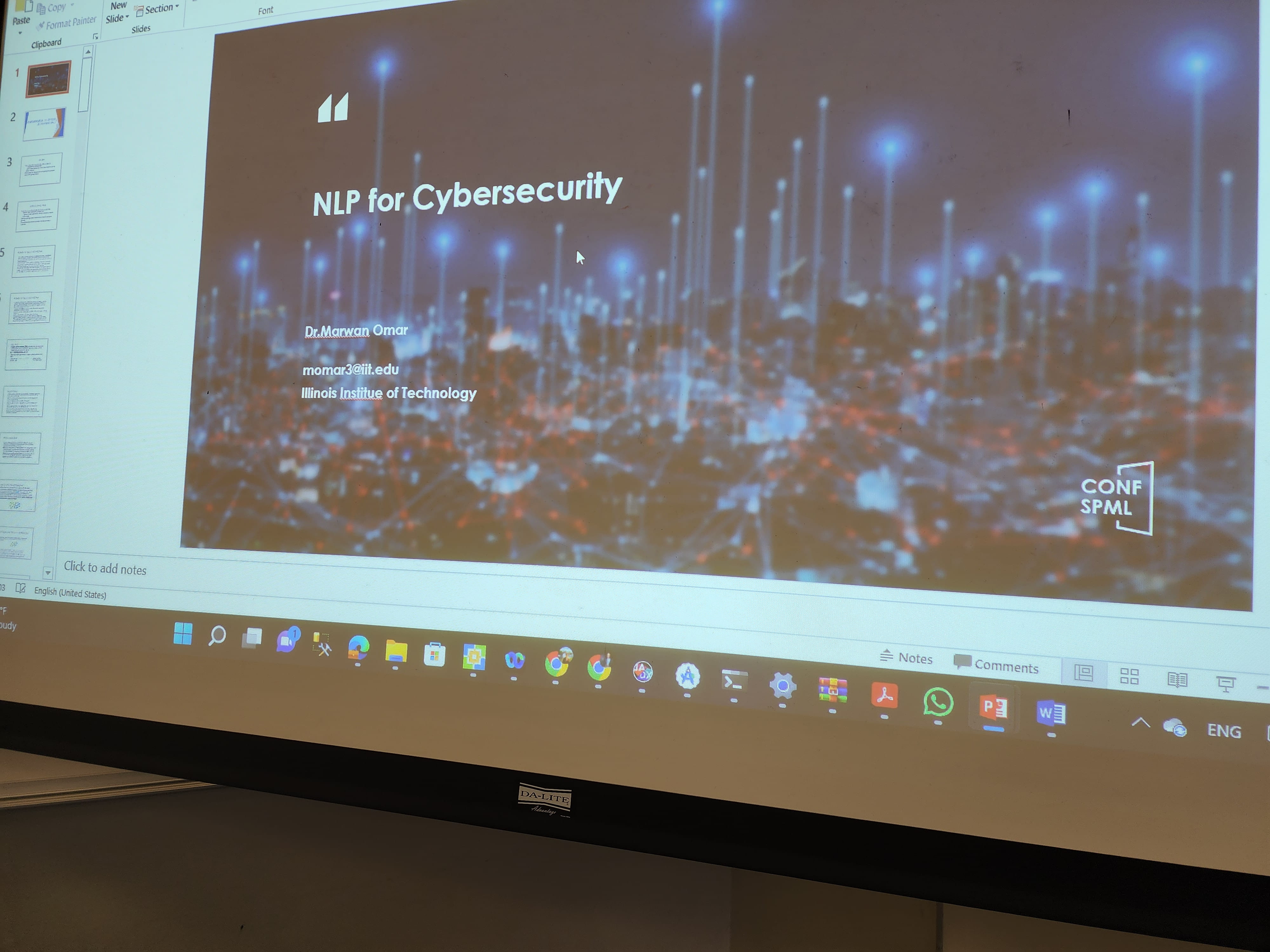
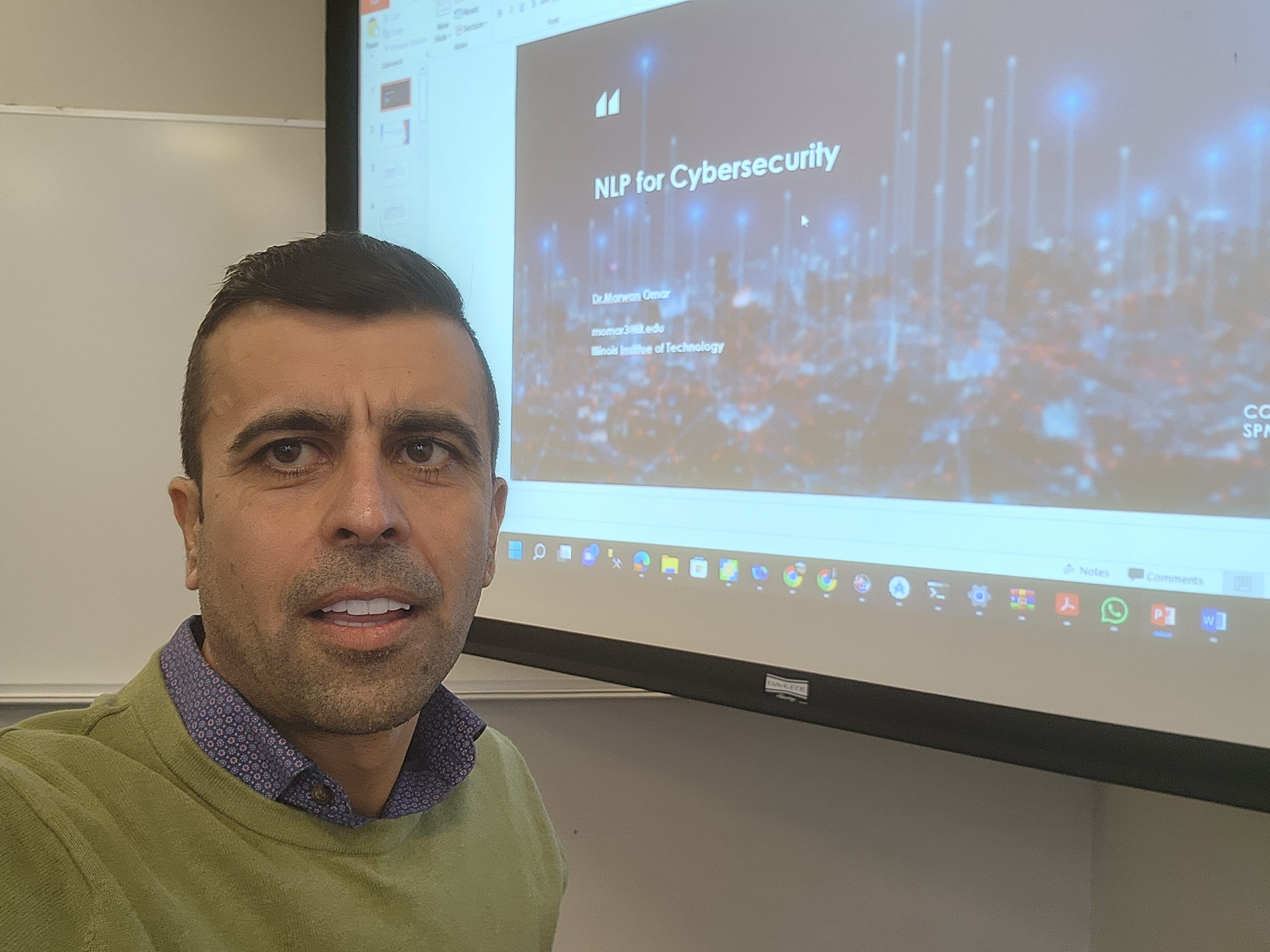
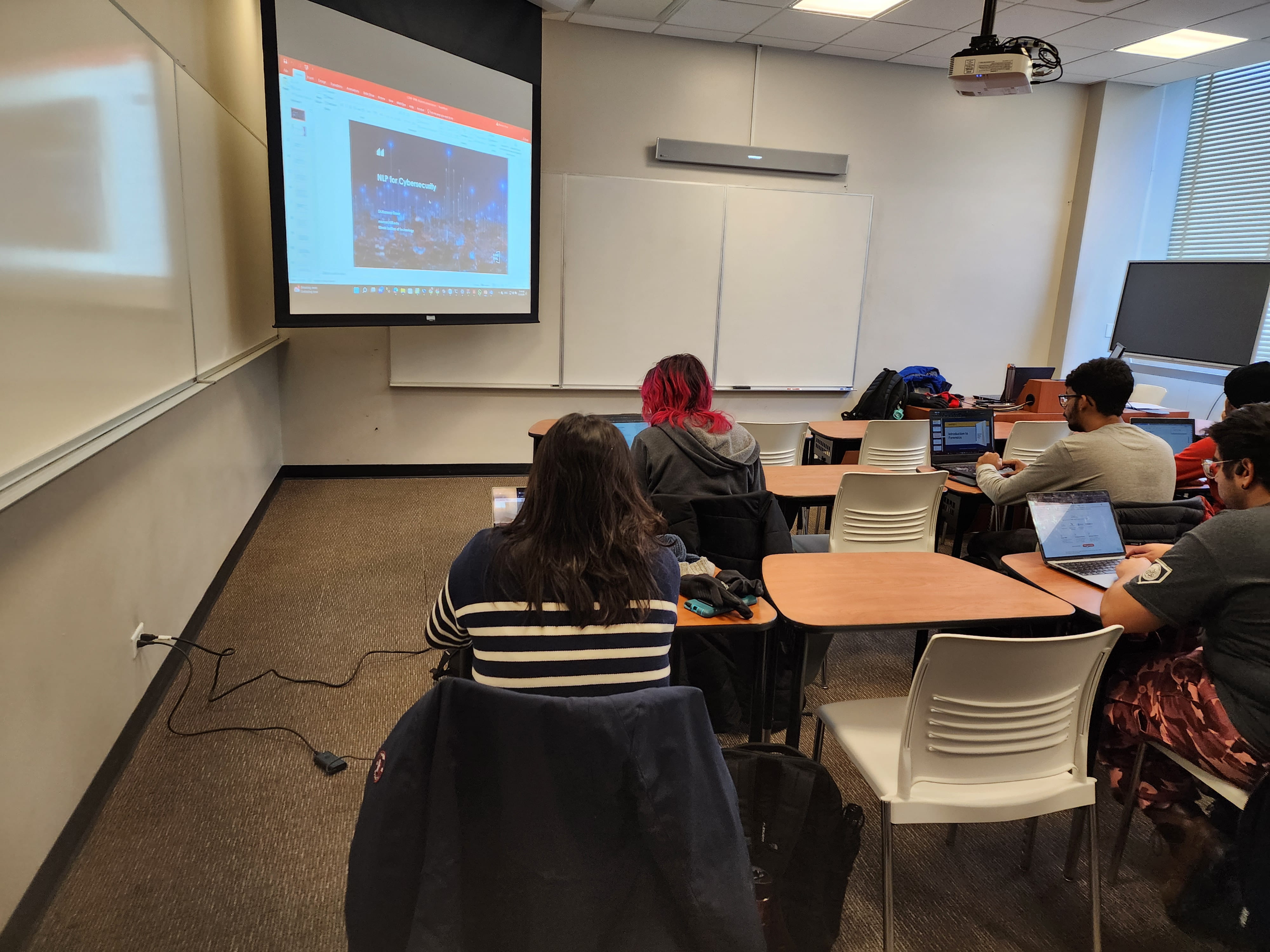
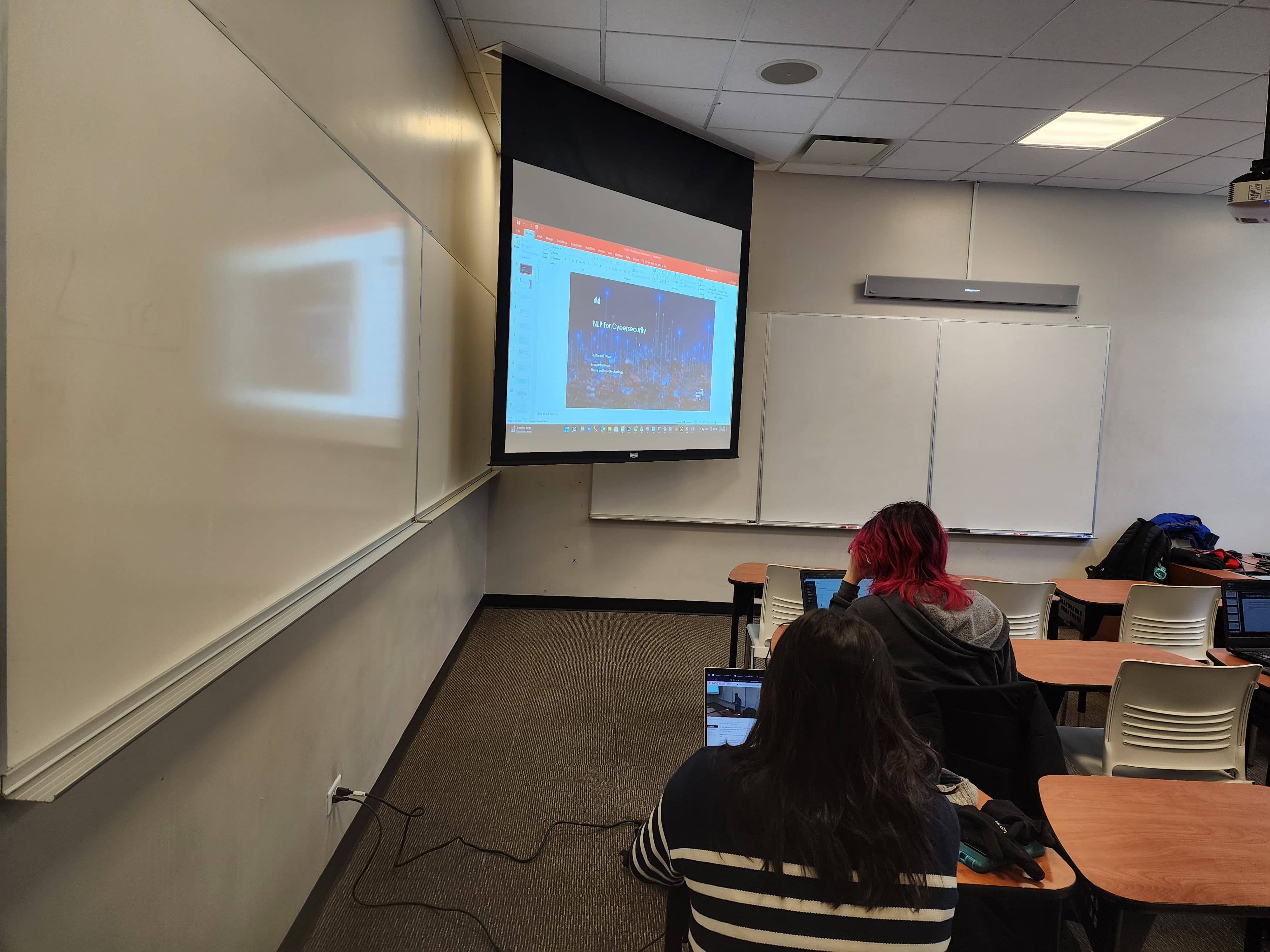
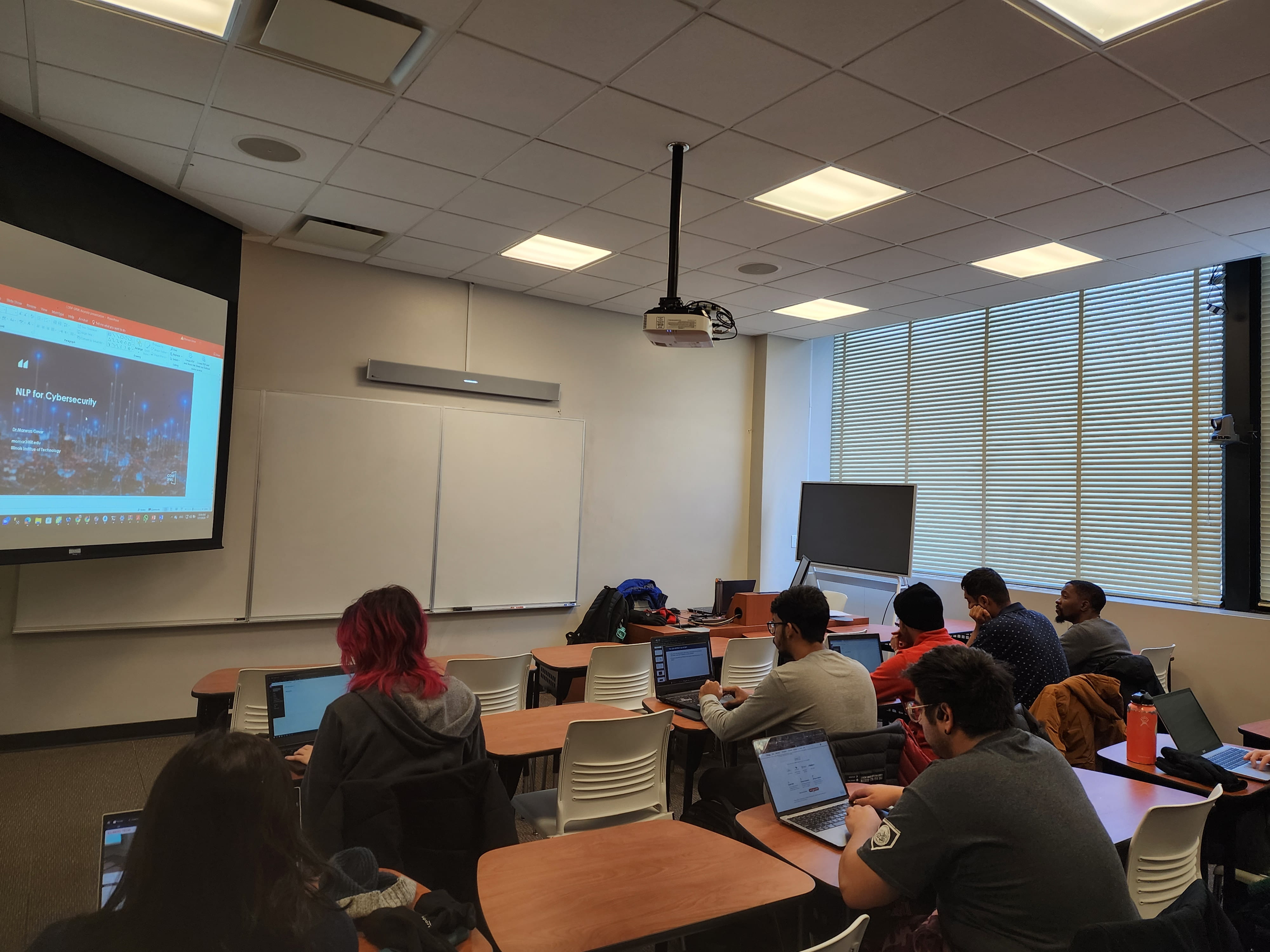
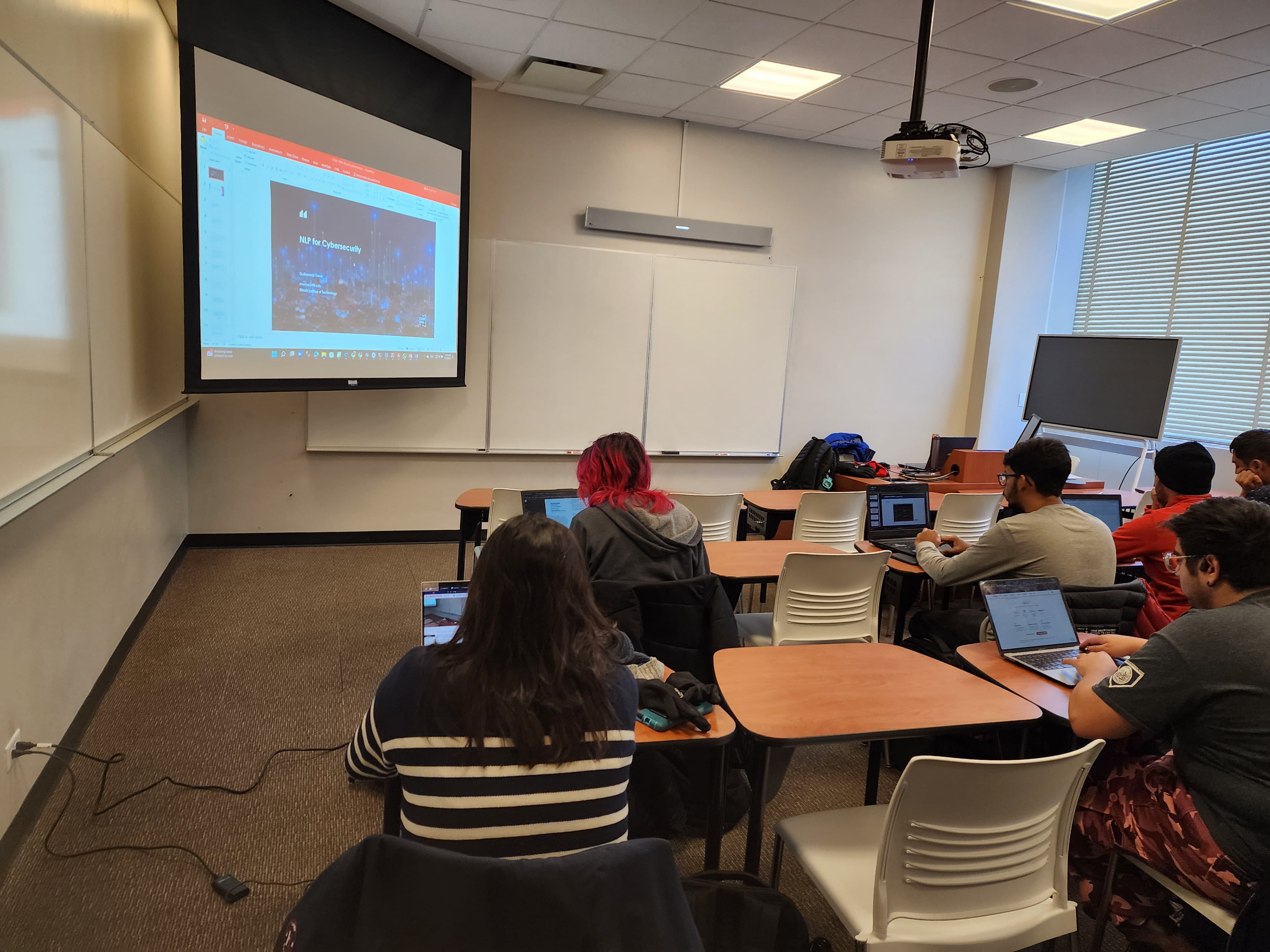
Access to Workshop:
CONF-SPML 2024 Workshop -- Chicago - YouTubeVenue:
Illinois Institute of Technology, 10 W 35th St, Chicago, IL 60616
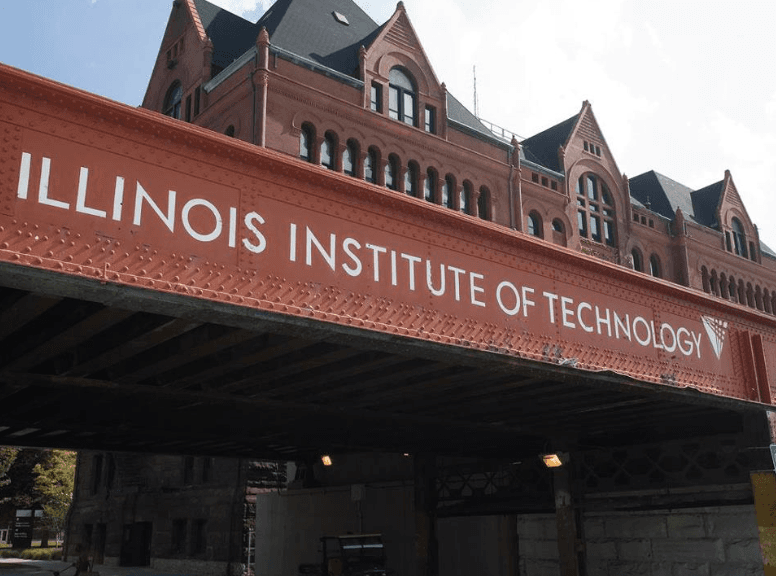
Visa:
https://travel.state.gov/content/travel/en/us-visas.html/
In order to ensure the information is correct and up to date, there may be changes which we are not aware of. And different countries have different rules for the visa application. It is always a good idea to check the latest regulations in your country. You should confirm details with your local Consular Office. This page just gives some general information of the visa application.
USA Visa Information
The B-1/B-2 visitor visa is for people traveling to the United States temporarily for business (B-1) or for pleasure or medical treatment (B-2). Generally, the B-1 visa is for travelers consulting with business associates; attending scientific, educational, professional, or business conventions/conferences; settling an estate; or negotiating contracts. The B-2 visa is for travel that is recreational in nature, including tourism; visits with friends or relatives; medical treatment; and activities of a fraternal, social, or service nature. Often, the B-1 and B-2 visas are combined and issued as one visa: the B-1/B-2.
Application Items
If you apply for a business/tourist visa, you must pay your $160 application fee and submit the following:
- A Nonimmigrant Visa Electronic Application (DS-160) Form. Visit the DS-160 web page for more information about the DS-160.
- A passport valid for travel to the United States with a validity date at least six months beyond your intended period of stay in the United States (unless country-specific agreements provide exemptions). If more than one person is included in your passport, each person desiring a visa must submit an application.
- One (1) 2 x 2 inches (51 x 51 mm) photograph taken within the last six months.
- If a visa is issued, there may be an additional visa issuance reciprocity fee, depending on your nationality.
In addition to these items, you must present an interview appointment letter confirming that you booked an appointment through this service. You may also bring whatever supporting documents you believe support the information provided to the consular officer.
Supporting Documents
- Invitation letter from business or school.
- Detailed CV or resume including a list of publications.
- Complete itinerary, including all meetings, conferences, and visits; include names, addresses, and telephone numbers of your hosts.
- For other materials, please refer to the U.S. Embassy or Consulate website.
NOTICE:
Should your application be denied, the organizing committee cannot change the decision of visa officer, nor will CONF-SPML engage in discussion or correspondence with the visa application center on behalf of the applicant. The registration fee CANNOT be refunded when the VISA application of individual being denied.
Attend in person:
If you want to attend the workshop on-site, please email the Conference Committee: info@confspml.org.
